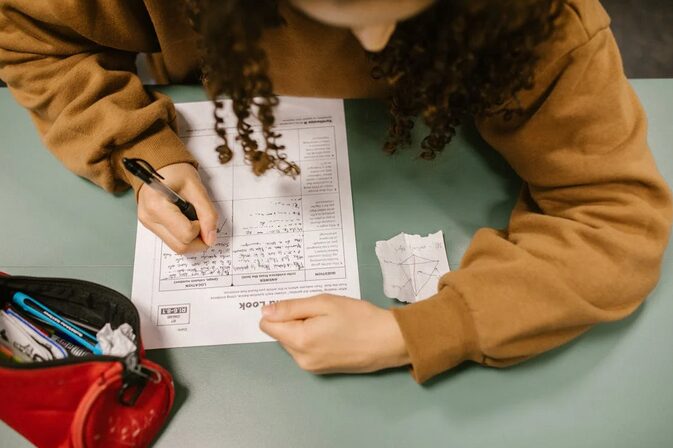Let’s get one thing straight: guessing on the SAT is not a good strategy. The SAT has a guessing penalty, meaning that for every question you get wrong, a fraction of a point is deducted from your score. This means that if you randomly guess on a 50-question SAT section, you are likely to lose more points than you gain. However, it doesn’t mean that you should never guess on the SAT.
In these SAT Math Secrets written by Glyn Caddell, it’s shown that there are times when guessing can be a smart strategy, and there are also times when it’s better to skip a question altogether. Mastering these techniques might make the difference between a good SAT score and a great one. So, without further ado, here are some guidelines for when to guess and when to skip on the SAT.
Keep Track of Time and Use It Wisely

Time management is crucial when tackling the SAT Math section. With limited time, it’s essential to keep track of the clock and allocate your minutes wisely. Begin by skimming through the questions to gauge their difficulty levels. Start with easier ones first before moving on to more challenging problems. Keep an eye on the timer throughout the test to ensure you’re pacing yourself effectively. If a question is taking too long, consider skipping it temporarily and coming back later if time allows. Remember, every second counts.
Eliminate Wrong Answers
When tackling SAT Math questions, one effective strategy is to eliminate wrong answers. By narrowing down the options, you increase your chances of selecting the correct answer. Start by carefully reviewing each choice and identifying any obvious errors or inconsistencies. Then, look for clues within the question itself that can help you rule out incorrect responses.
Sometimes, even if you’re unsure of the exact solution, you can use logic to discard choices that don’t align with the problem’s context. Consider utilizing a process of elimination by crossing off answers that are clearly incorrect. This method can simplify complex problems and lead you closer to finding the right solution.

Focus on Strengths
You see, each student has different areas where they excel, whether it’s algebra, geometry, or statistics. By focusing on what you’re already good at, you can boost your confidence and earn more points. Instead of getting bogged down by challenging questions that may not play to your strengths, prioritize the topics that you find easier to tackle. This strategy basically allows you to maximize your score potential in the limited time available during the test. By honing in on your strong suits, you can quickly and accurately solve problems within those areas. This targeted strategy not only saves time but also increases your chances of selecting the correct answers confidently.
Quickly Identify Unfamiliar Problems

We’re talking about those questions that might initially stump you or throw you off track. My best tip is: don’t waste precious time getting stuck on them. Instead, take a moment to assess if there’s another question nearby that seems more manageable. Sometimes, skipping ahead can help clear your mind and boost your confidence. If an unfamiliar problem still gives you trouble later on, don’t hesitate to come back to it with fresh eyes. After all, every correct answer counts towards your score. So prioritize the questions where you feel most confident first.
To boost your success in the SAT Math section, it’s essential to develop effective strategies for when to guess and when to skip questions. Keep track of time, eliminate wrong answers, quickly identify unfamiliar problems, and focus on your strengths. And most importantly, make sure you read the best prep SAT Math book available.

